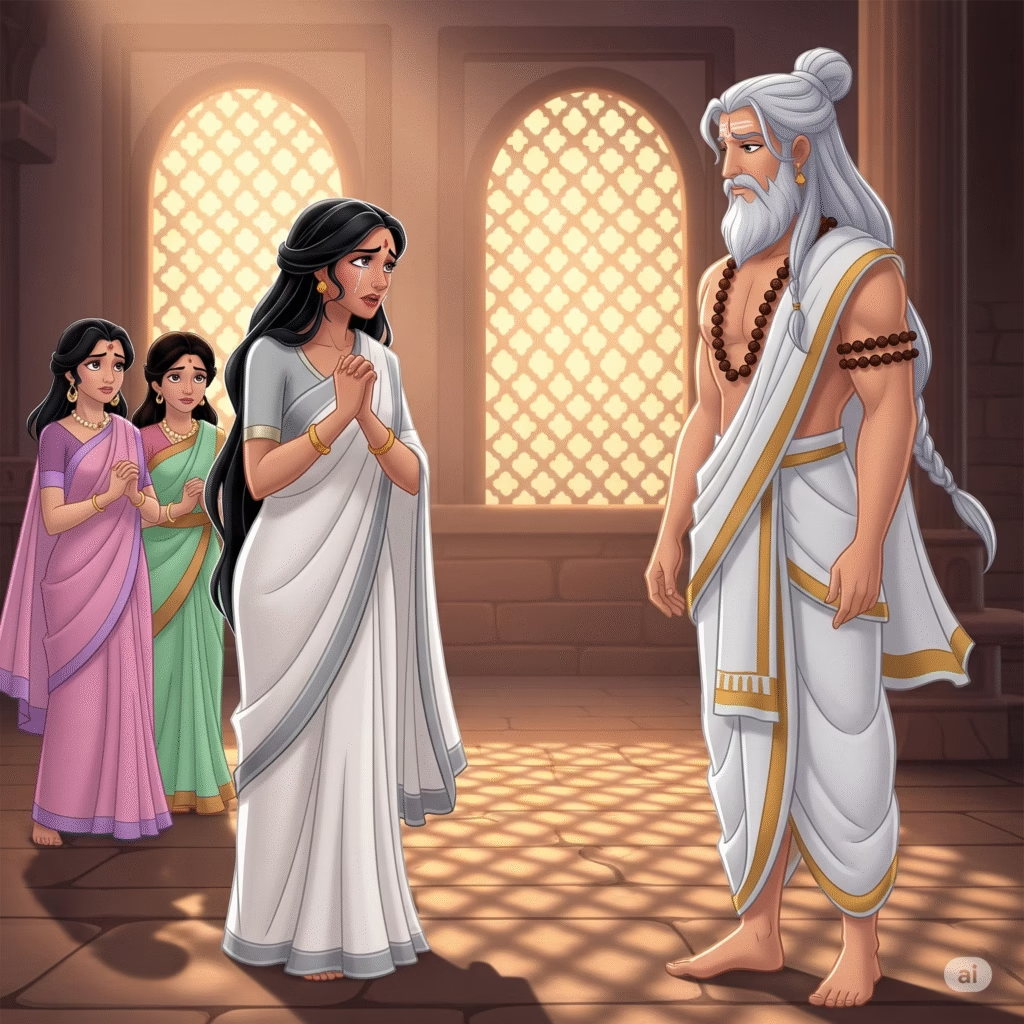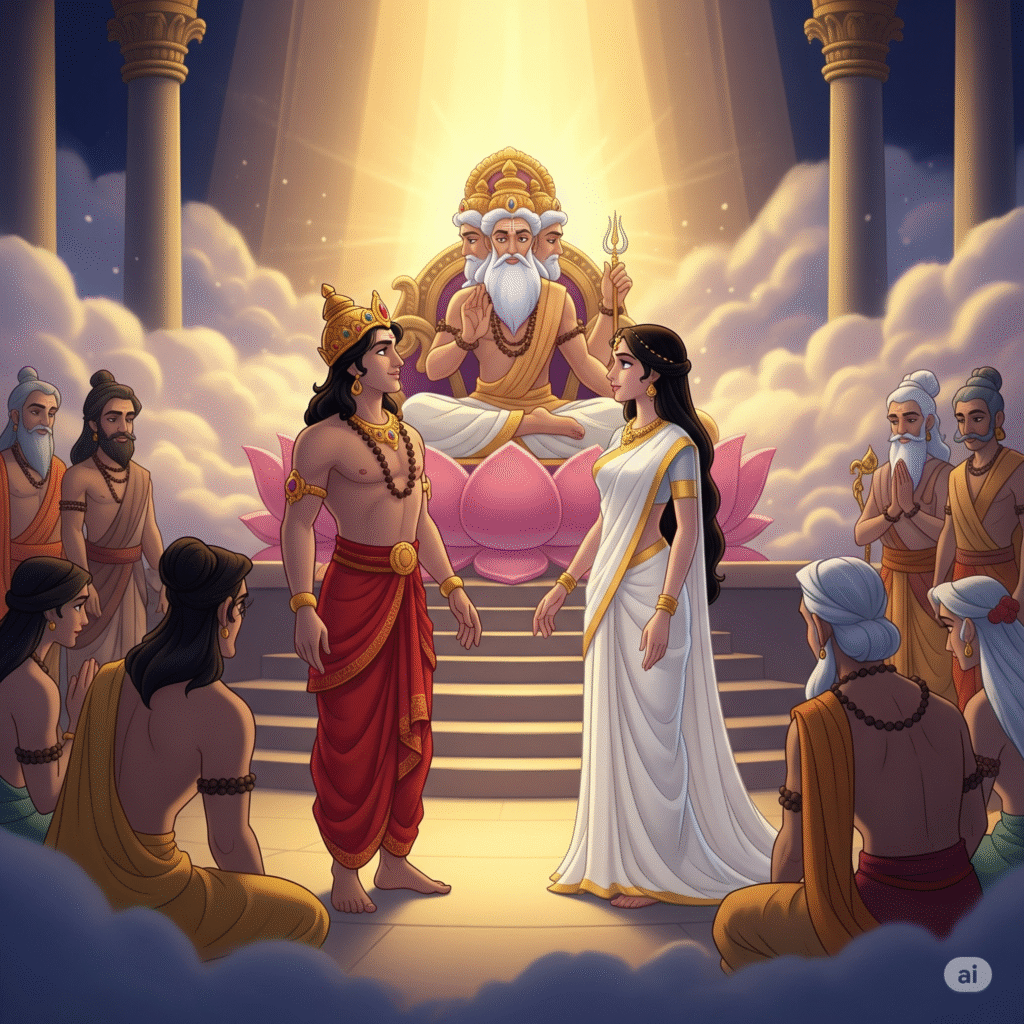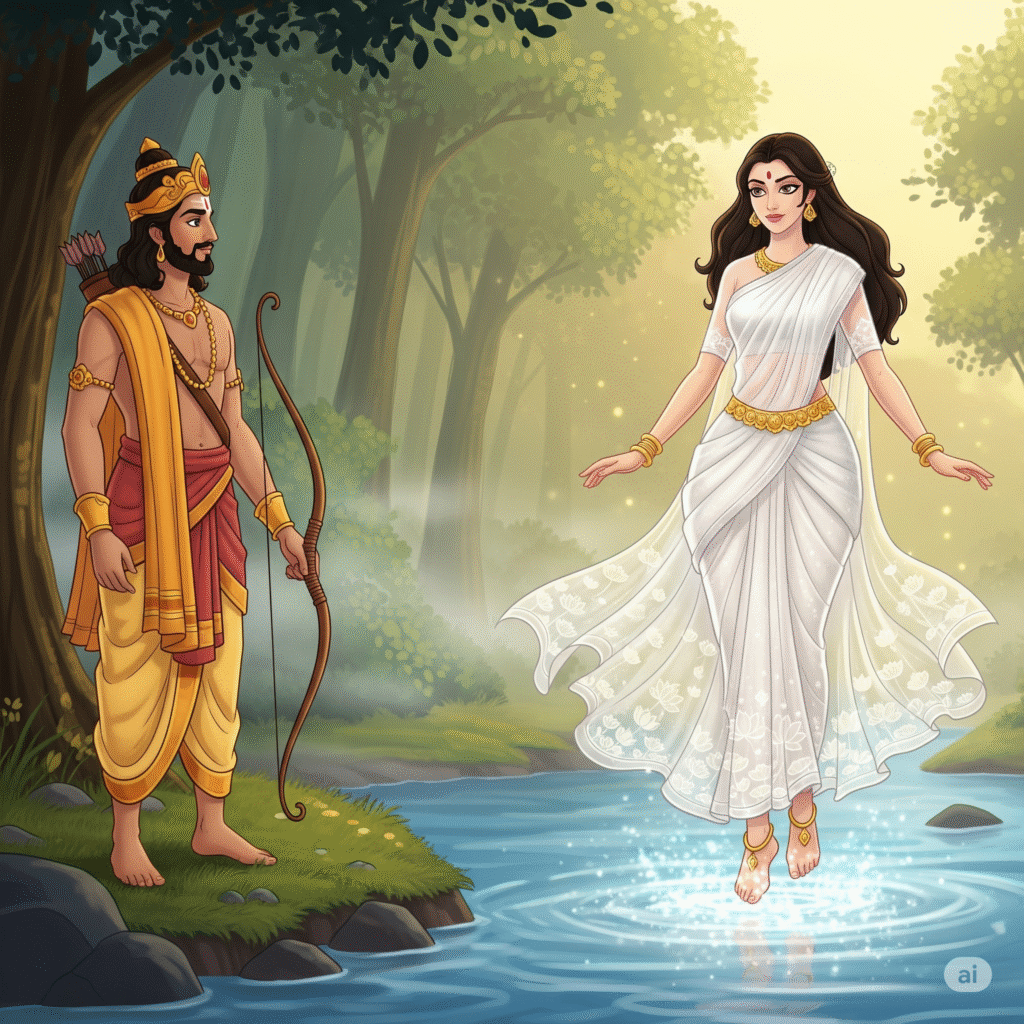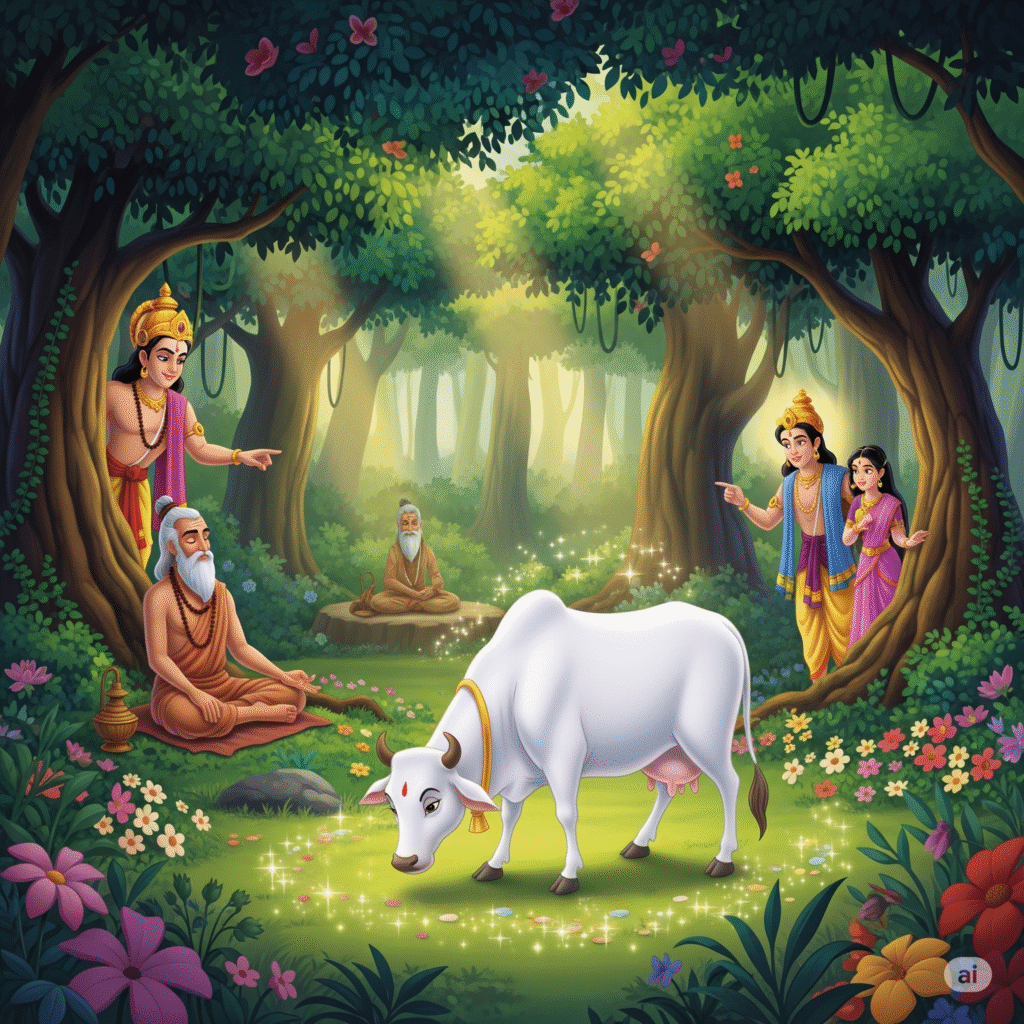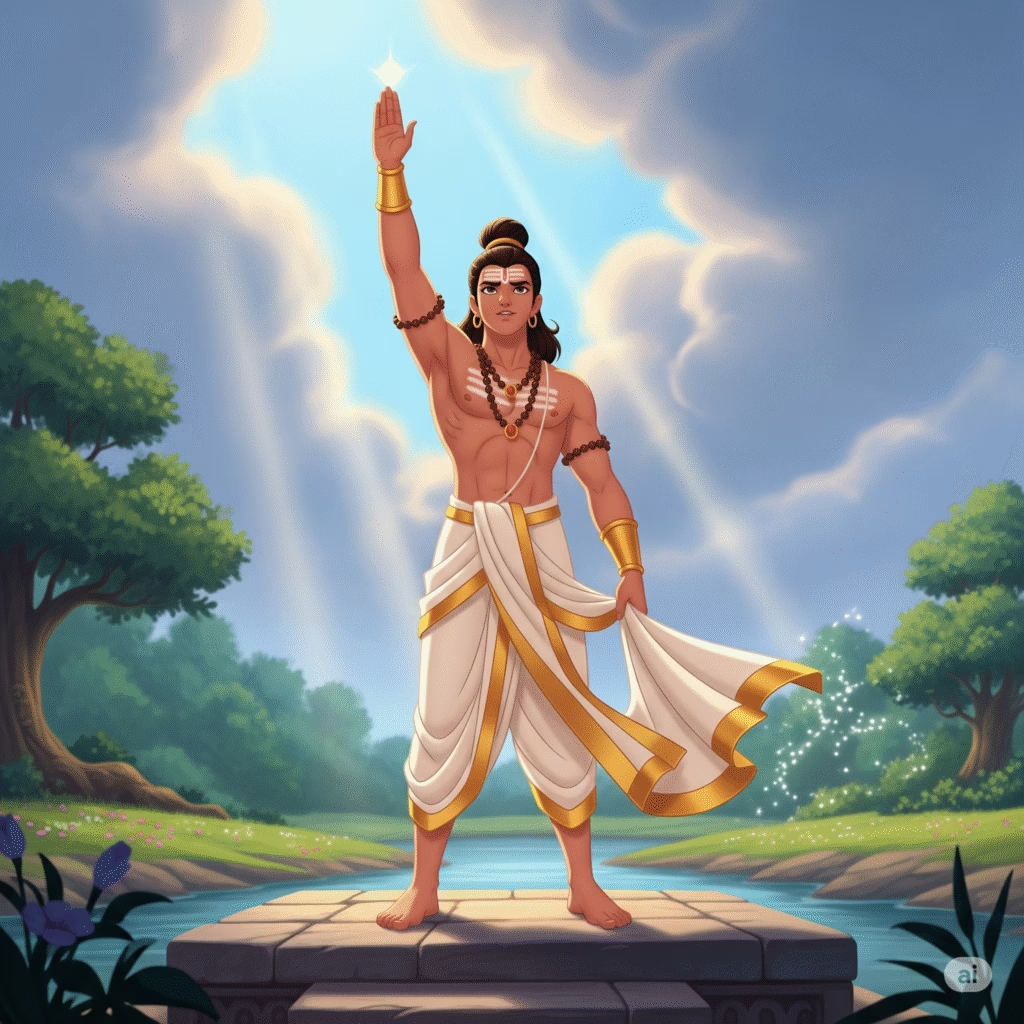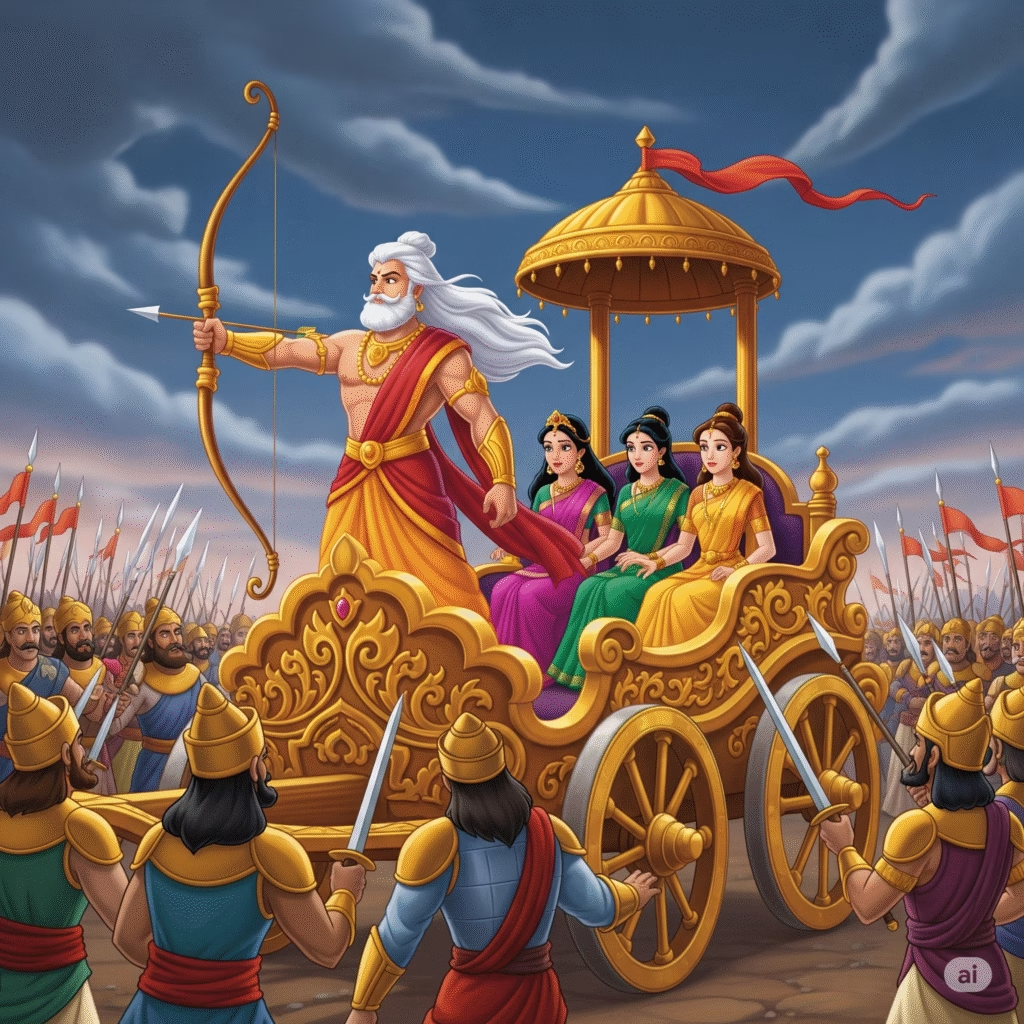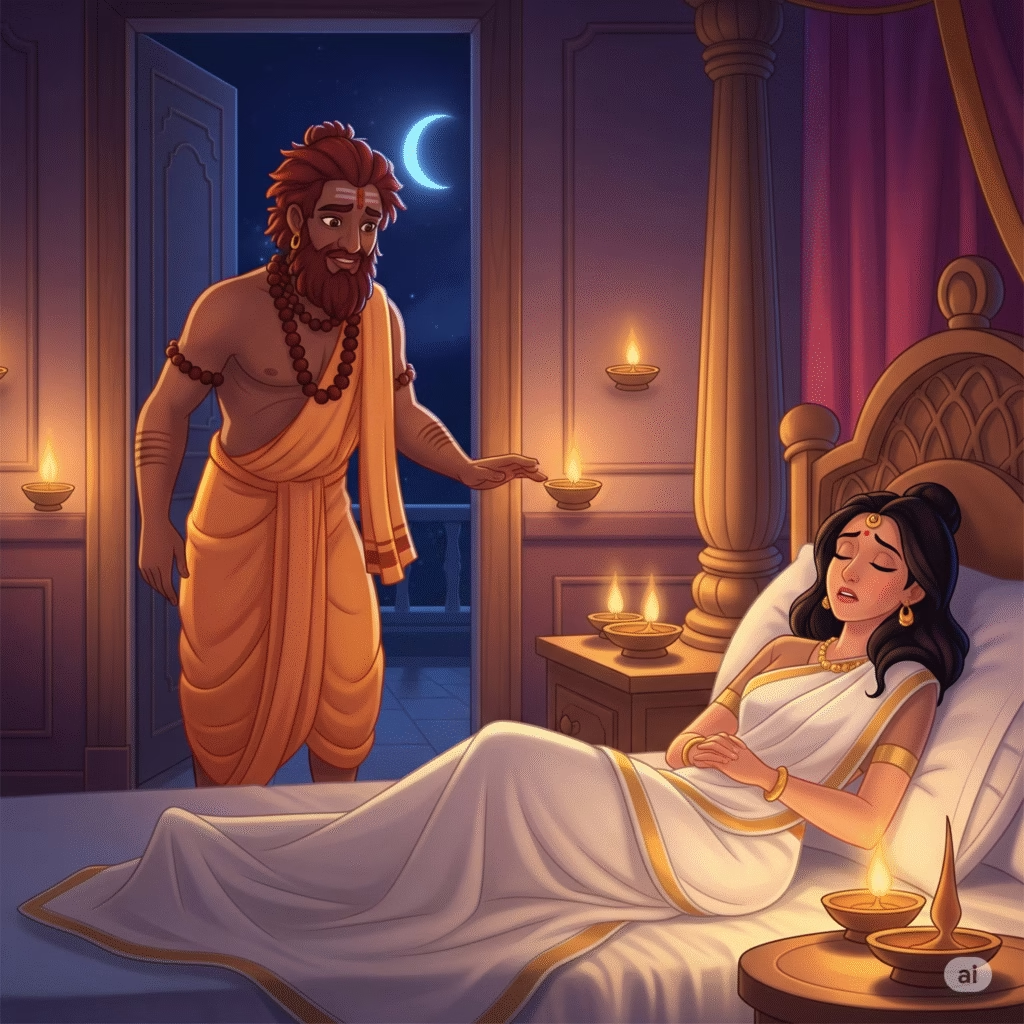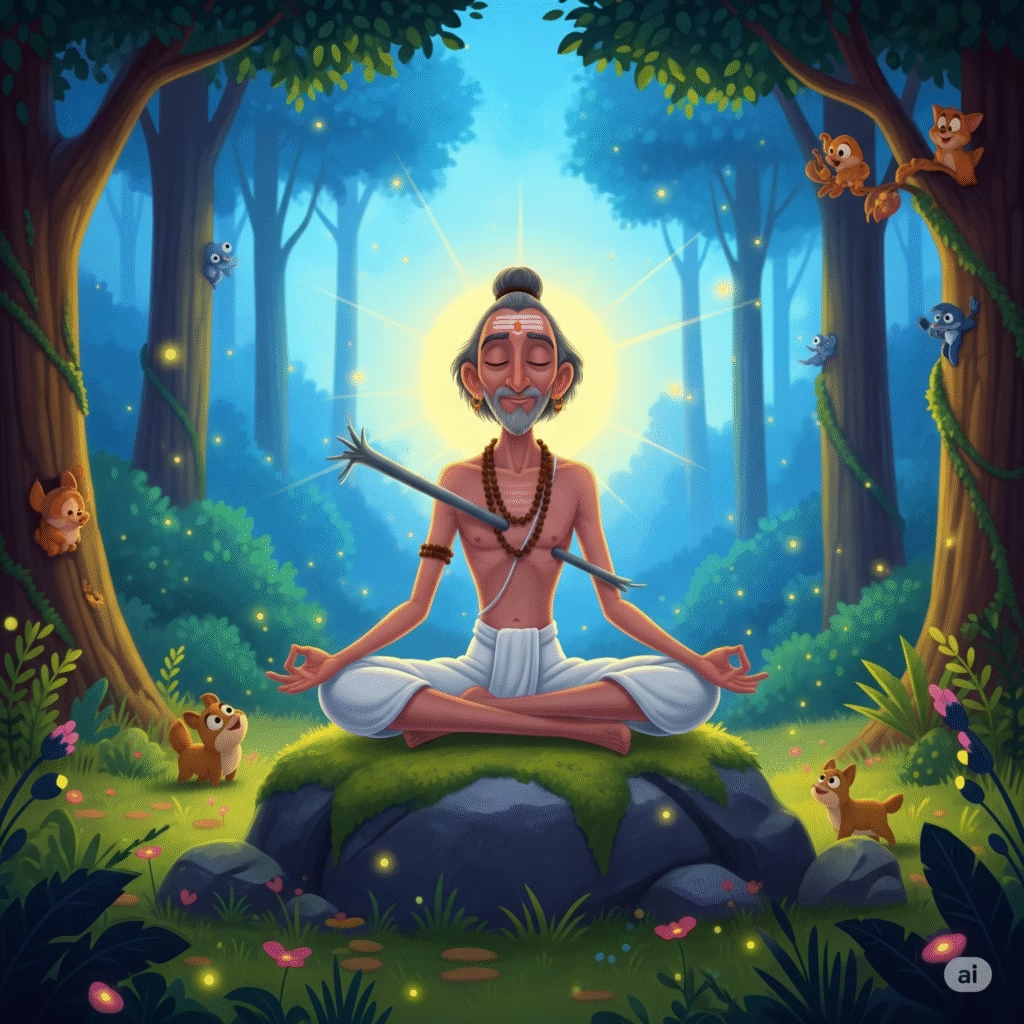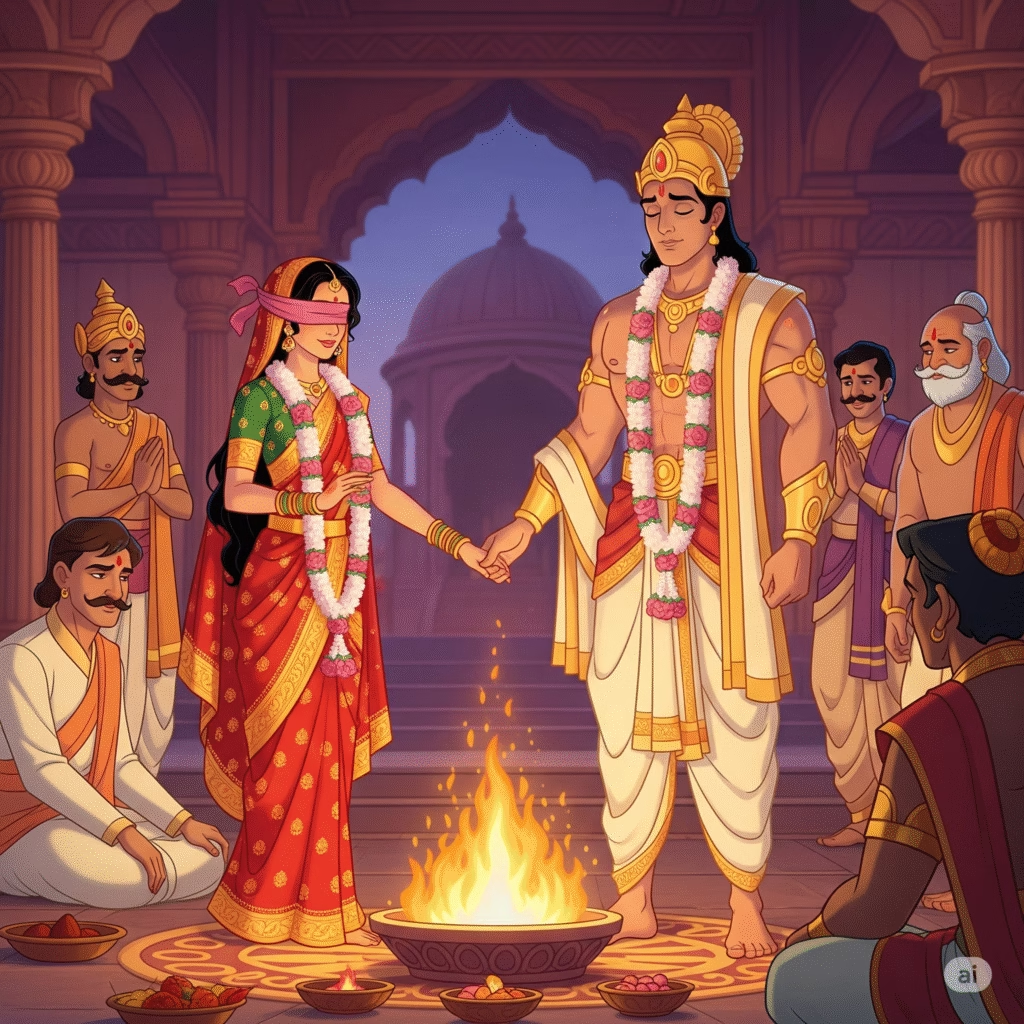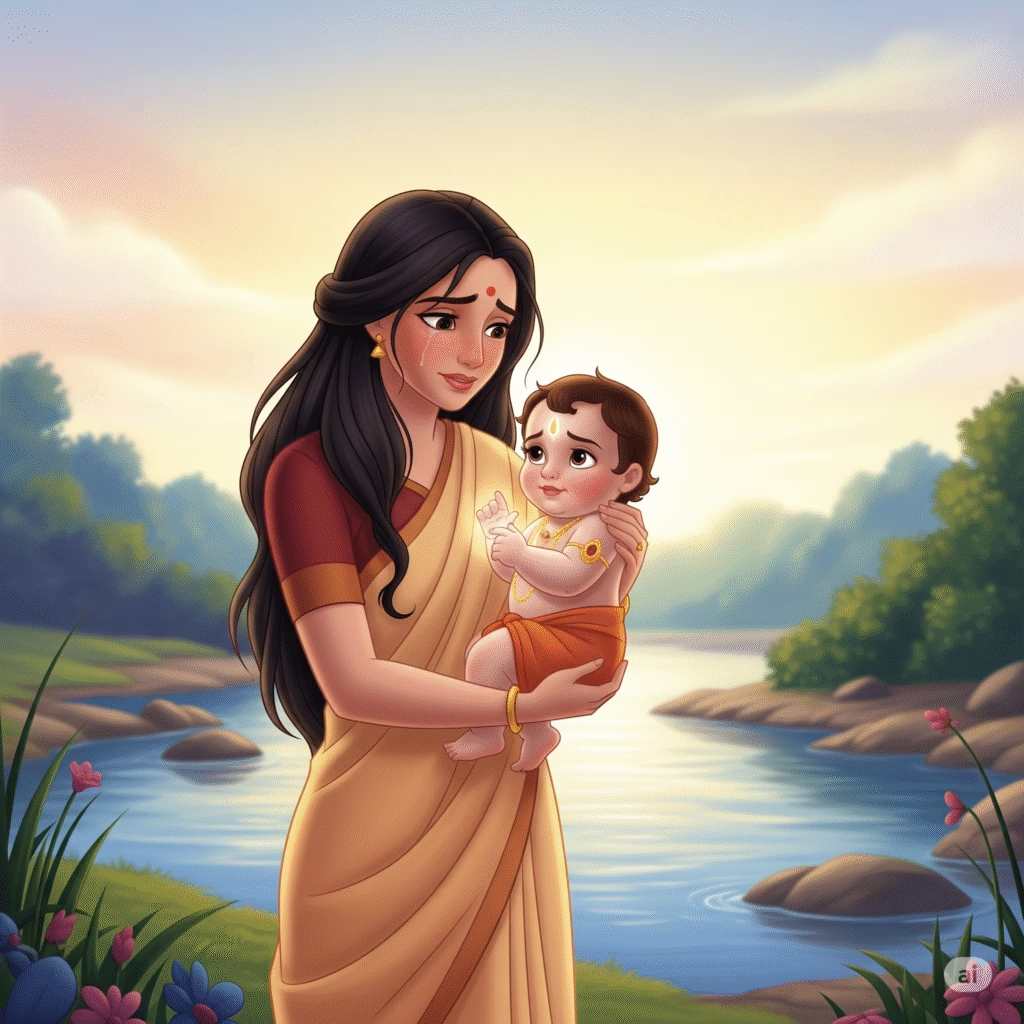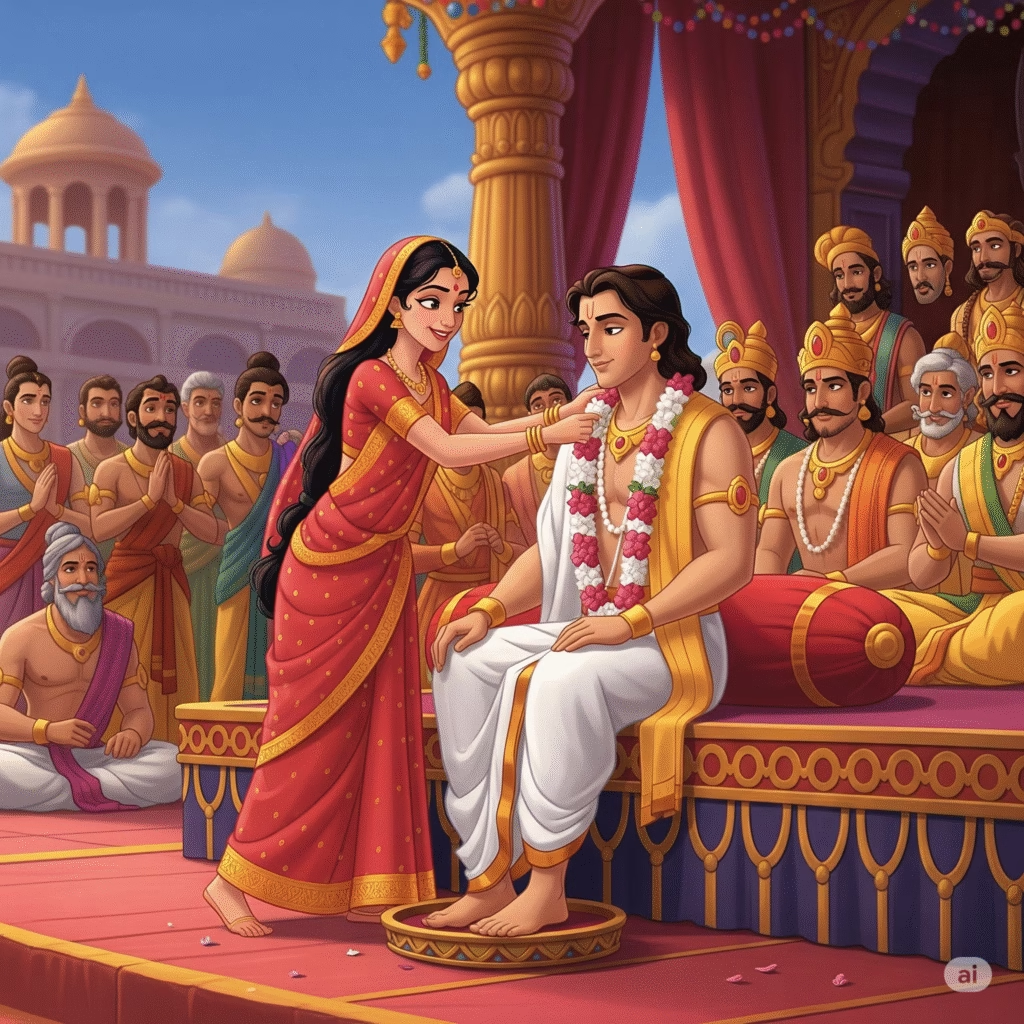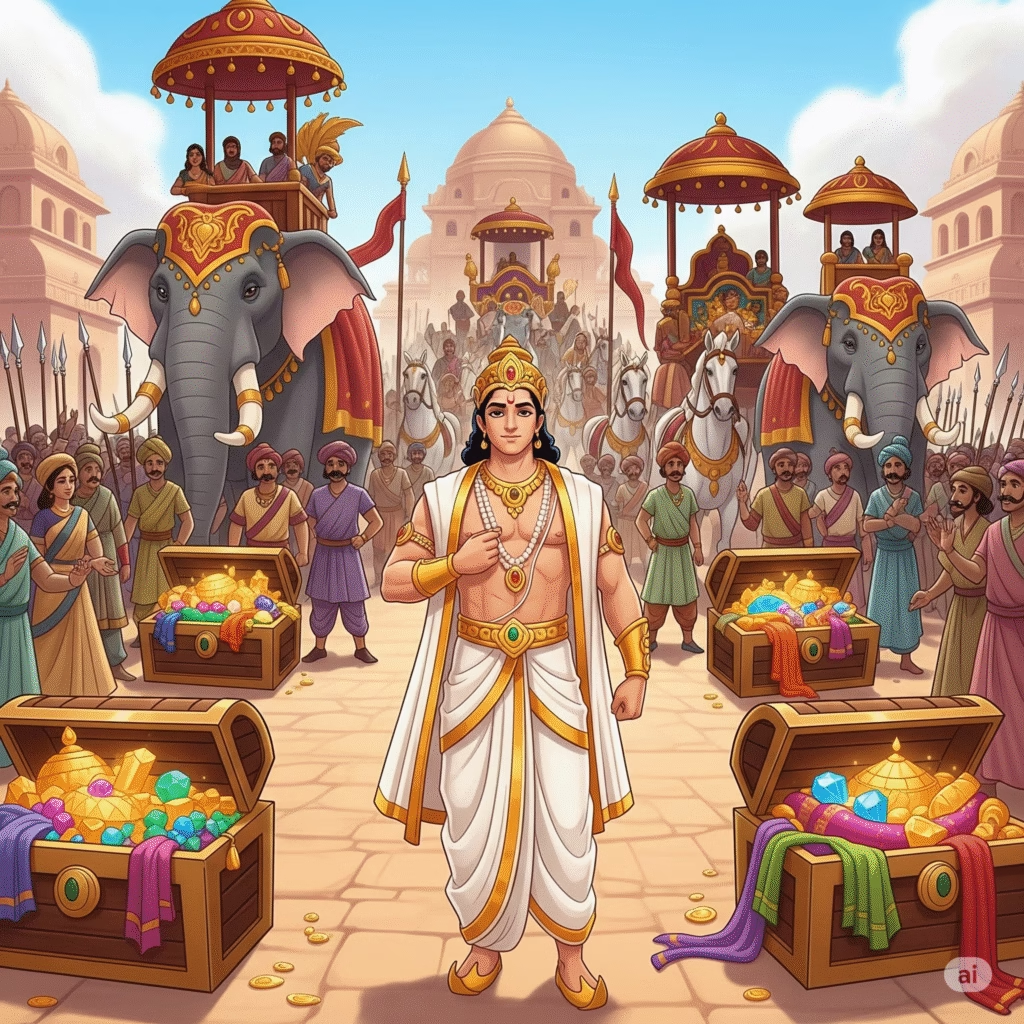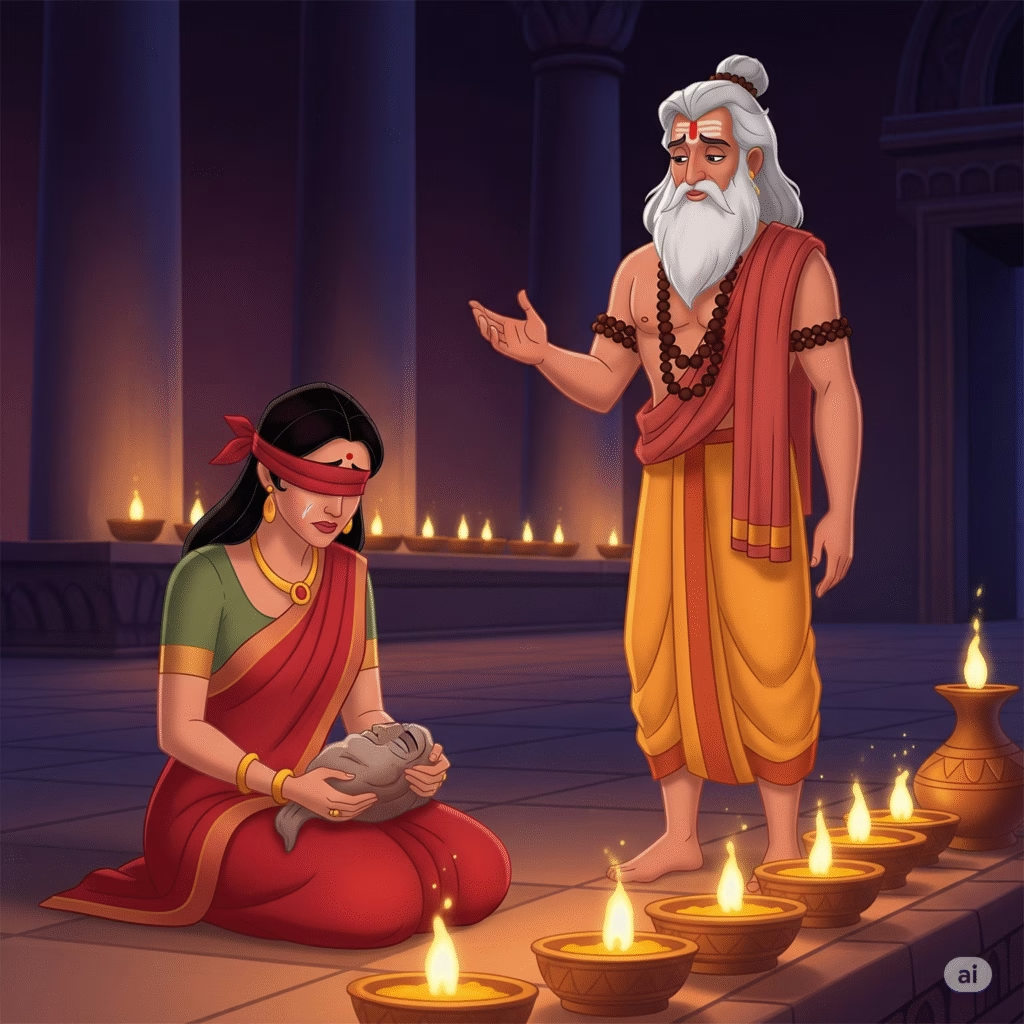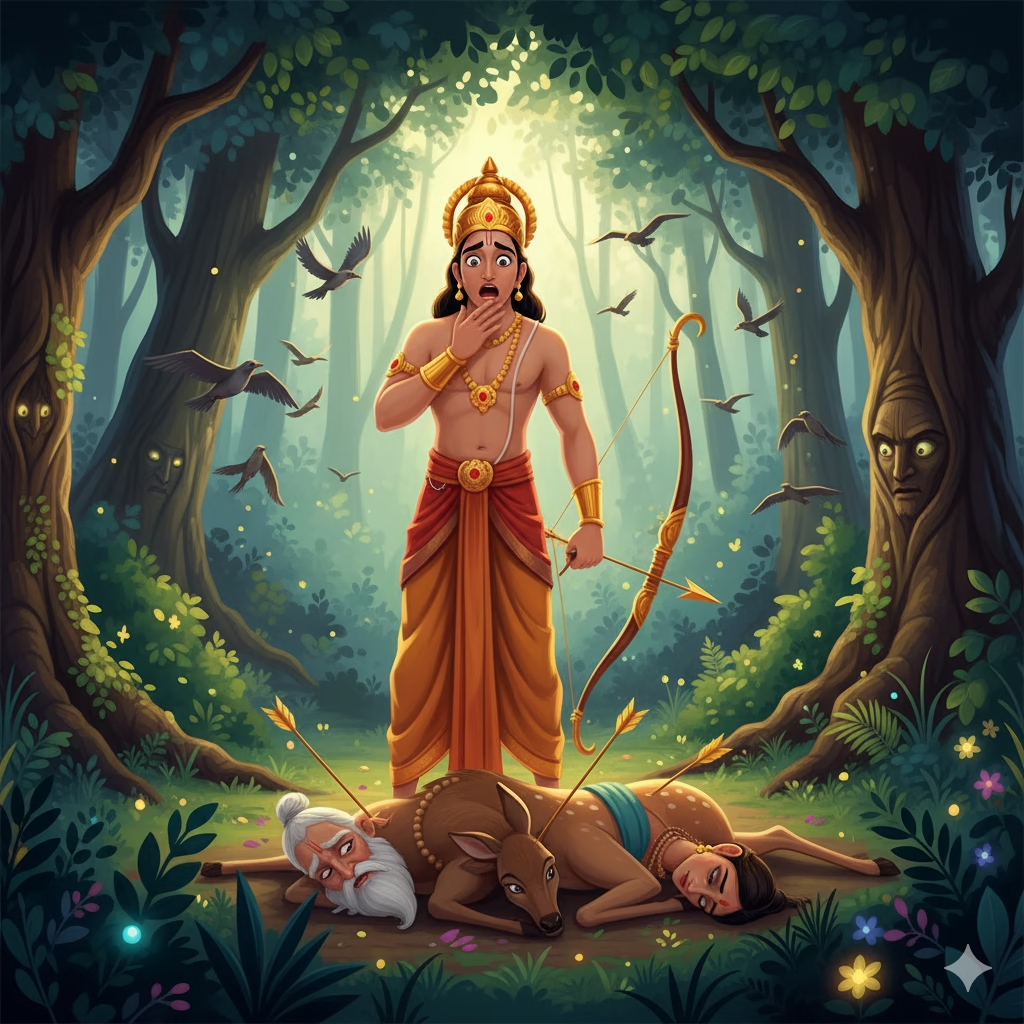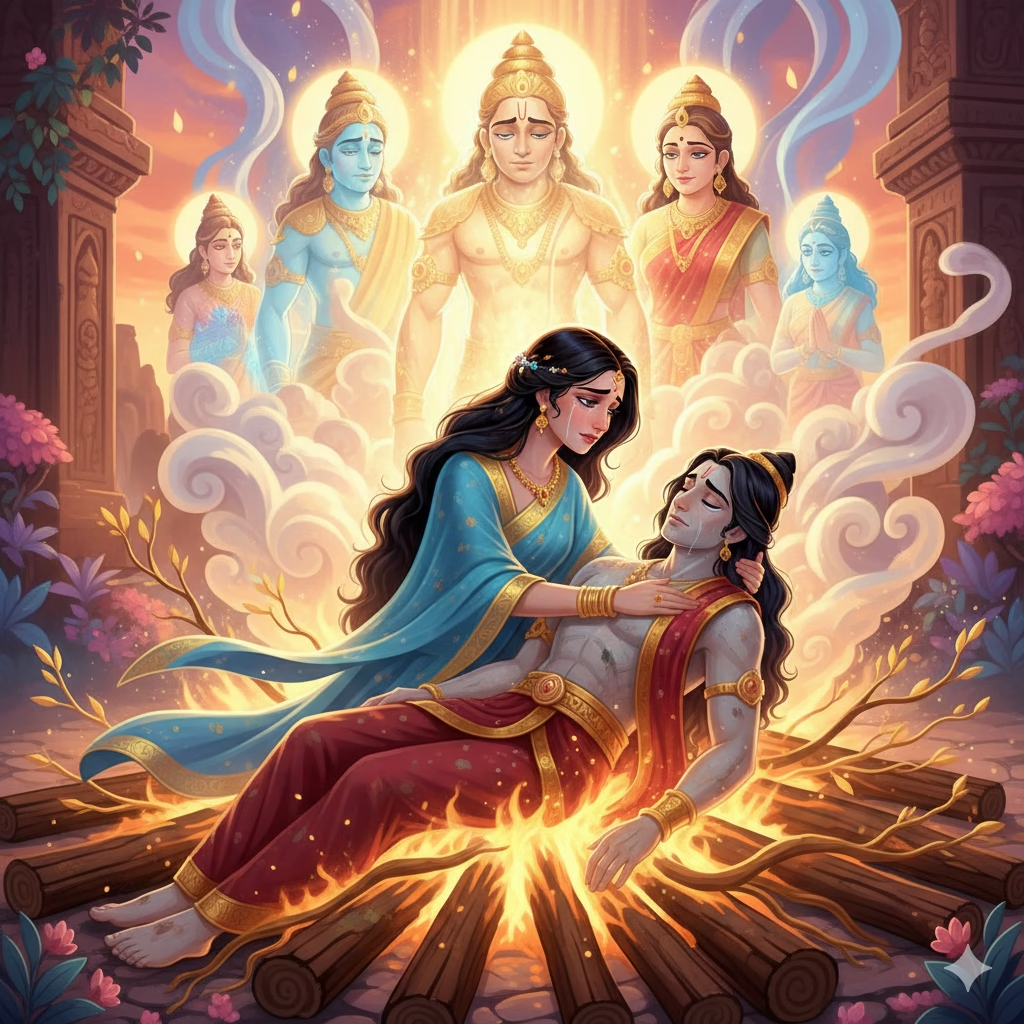Back in Hastinapura, the other two princesses—Ambika and Ambalika—were respectfully wed to Vichitravirya. Their youth and beauty promised a new chapter, and the court rejoiced. But happiness built on fractured choices rarely lasts.
Vichitravirya was young, handsome, and newly crowned. Surrounded by two beautiful queens, he glowed in the attention that came with his new stature. He saw their beauty as a reflection of his worth and believed their presence completed him. He was so absorbed in what he had acquired that he never paused to ask what he had become. He did not build a bond of heart—only one of ownership. He lived as if youth and pleasure would stay eternal. What happens when a youth is handed a throne without a war? What happens when one’s beauty becomes their sole qualification? Vichitravirya, barely out of boyhood, found himself surrounded by admiration, luxury, and two wives. But beneath this shine, was he truly ready for love or leadership? He wore his youth like a crown, mistaking beauty for power and possession for love. In his pride, he believed the queens belonged to him, not just as wives, but as extensions of his charm and status. And in doing so, he never paused to ask: Did he truly know them? Did he even know himself?
Seven years later, Vichitravirya died young, childless. Despite royal physicians and every healing hand, he could not be saved. Before Hastinapur could even settle into its new rhythm, its young king withered away, consumed by his indulgences. No enemy came from outside. The palace that had just filled with royal brides now echoed with grief. Vichitravirya died childless. A royal pyre was lit, but with it burned not just a body, but the hope of a smooth succession. The Kuruvansha was suddenly rudderless again. Satyavati, who had once dared to dream of a legacy, now stood at the edge of a dark void, with no heir and no plan. The throne was empty. And the burden of dharma began to shift towards Bhishma once again. Bhishma, the ever-dutiful guardian, was left behind again—to mourn, to manage, and to clean the shards of fate broken not by war, but by silence. And in that silence stood Bhishma – the pillar, the promise, the prince who had walked away from marriage, power, and progeny. All for the love of his father. All for one word—vow.
But that day, his mother—not by birth but by fate—stood before him, broken and desperate. With eyes drenched in longing, she did not speak as a queen. She said as a mother whose lineage was vanishing into nothingness. Her words were not mere appeals; they were the weight of a dying dynasty. “Bhishma,” she said, “my son, this lineage… Its burden now rests on your shoulders. Your brother is gone, and these two queens of Kashi—youthful, sorrowful, and hopeful—await sons who will carry our name. I ask you, not as a mother-in-law, but as a guardian of dharma—marry them. Beget children. Secure the future.”
There was no hesitation in Bhishma. There was no storm of doubt—just an unshakable calm, like the eye of a hurricane where silence holds truth. “Mother,” he replied, “what you say is indeed righteous. But I shall not marry. I shall not father sons. My vow stands taller than any throne. Even if the earth loses its scent or fire its heat—even if the sun forsakes its brilliance or the sky loses sound—even then, I will not abandon my vow.” His words did not rise from ego; they rose from the iron will of inner alignment—when one’s actions, promises, and identity are indivisible.
Satyavati tried again. Not with arguments. But with softness. She reminded him of his power—that he could create a new world if he so wished. That this dharma he clung to could be interpreted more humanely, more flexibly. But Bhishma… was Bhishma. “If I abandon truth for convenience,” he said, “what worth is this life? Even heaven or immortality cannot tempt me into forsaking what I once promised.” And then he did something remarkable. Instead of saying no and walking away, he offered a path. Not a selfish one. Not one to protect his image. But one born of wisdom. “There is a way,” he told her. “One that keeps the lineage alive, honours dharma, and keeps my vow intact. Let us consult the learned sages. Let us turn to niyoga—a practice enshrined in sacred law. And I shall remain true to my word, yet loyal to my kingdom.” It was the kind of solution only someone who embodied dharma could propose. Not escape. Not stubbornness. But sacrifice with insight.
How many times in life are we faced with such pleas? From family, from relationships, from society? They ask us to bend. To break our boundaries. To adjust “just this once.” And sometimes… they are right. But sometimes, we must ask: Am I being asked to abandon who I am? Sometimes, the weight of tradition is passed down not as a blessing but as a burden. Parents, with trembling voices and hopeful eyes, ask their children to marry and to have children, not always out of love, but often out of fear. Fear that the lineage may end. That their legacy might dissolve into silence. But are these children truly ready? Or do they step into lifelong commitments haunted by the shadows of obligation?
In truth, the dharma of the elders of the family is not just about doing what is expected—it is also about questioning what is fair for the coming generations. It is the sacred responsibility of our elders not to pass down the weight of their unfulfilled dreams or anxieties in the name of family duty. And the dharma of the younger ones is to pause and question. To turn inward and ask: Is this choice born of truth or fear? For not every voice within us is our soul speaking; sometimes, it is our conditioning whispering. If fear is the root, we must have the courage to deny it. But if our conviction is anchored in truth—even if it scorches-we must have the strength to burn in it. Because dharma is not about comfort; it is about alignment with our highest self. And that silent fire within, the one that doesn’t tremble even when the world shakes—that is the voice the higher consciousness longs for us to follow.
Bhishma’s greatness didn’t lie in his silence—it lay in his clarity. He knew when to say no. He knew when to say not this way, but maybe another. That is the inner Kurukshetra we all must face. Just as Bhishma chose integrity over inheritance, perhaps we too must ask—is fulfilling a duty truly noble if it demands the surrender of our deepest truth?
Journaling Prompts
- Where in life are you holding on to a vow, a decision, or a boundary that defines you?
- And what do you do when love, duty, or pressure asks you to compromise it?
- Can you find a third path—like Bhishma did—that honours both truth and compassion?

